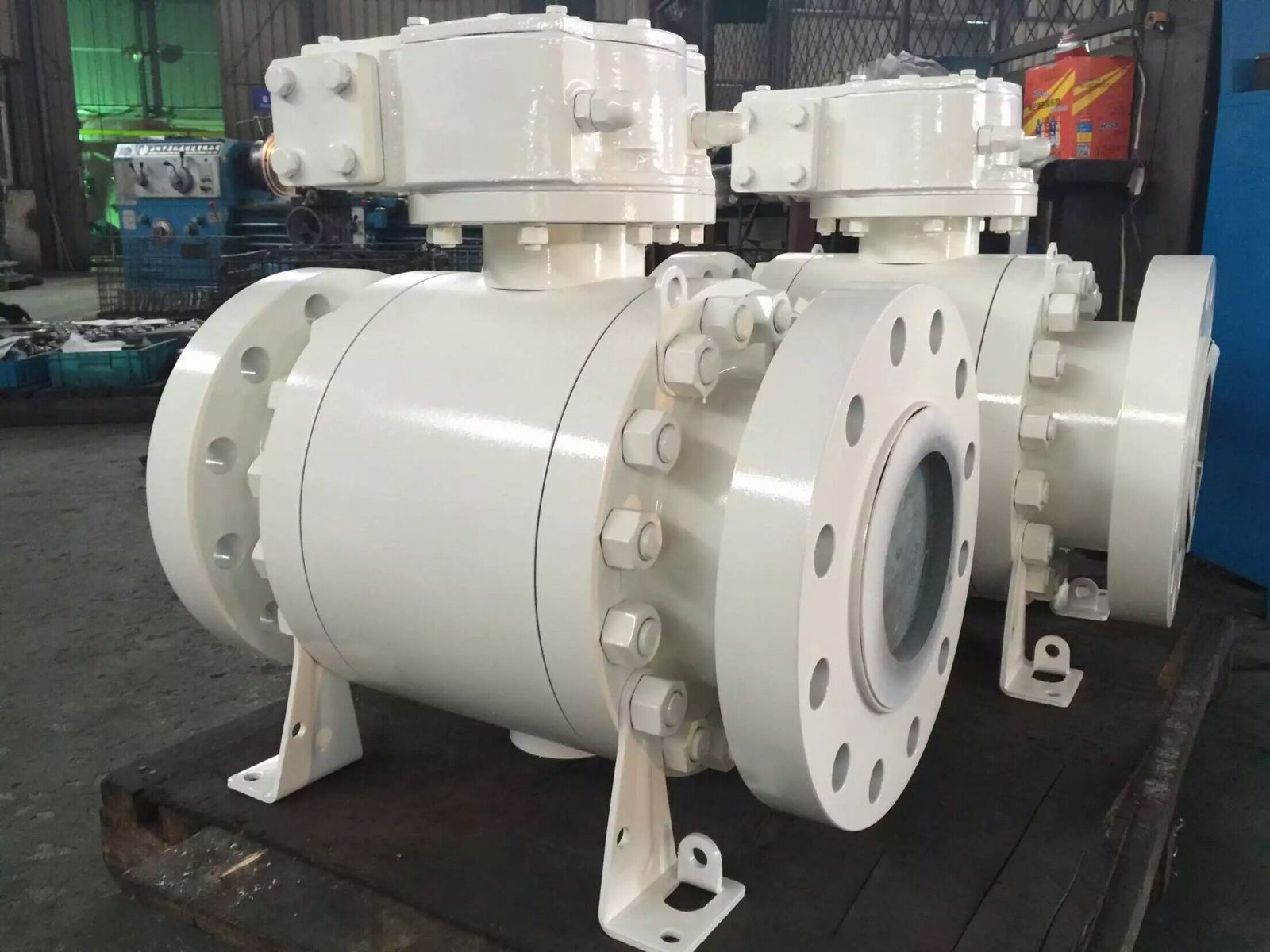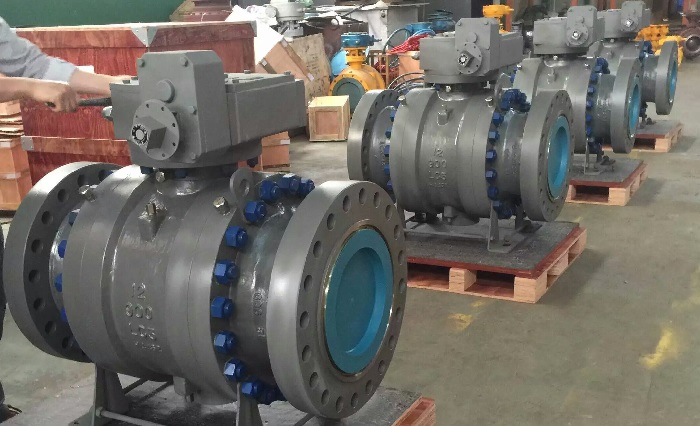A forged ball valve is a type of valve that is made from forged materials, typically steel. The valve has a spherical ball inside that rotates to control the flow of fluid through the valve. The forging process involves heating the metal to a high temperature and then shaping it using a hammer or press. This results in a stronger and more durable valve compared to valves made from cast materials. Forged ball valves are commonly used in high-pressure and high-temperature applications, such as in the oil and gas industry.
- Strength: Forged steel valves are known for their strength and durability, making them suitable for use in high pressure and temperature environments. They are also resistant to fatigue and stress corrosion cracking.
- Surface finish: The forging process used to make forged steel valves can result in a smoother surface finish compared to other types of valves. This smooth finish may be more resistant to corrosion over time.
- Size: Forged steel valves can be made in a wide range of sizes, as the forging process allows for the creation of large, complex shapes.
- Customization: Forged steel valves can be customized to meet specific requirements, as the forging process allows for the creation of complex shapes and intricate details.
- Quality control: The quality of a forged steel valve is more consistent due to the precision of the forging process. This can result in a higher quality product with more consistent performance.
Overall, forged steel valves are a reliable and high-quality option for many industries due to their strength, surface finish, size, customization options, and quality control. They are generally more expensive than other types of valves due to the more complex manufacturing process.
There are a few potential disadvantages to using forged steel valves:
Cost: Forged steel valves are generally more expensive than other types of valves due to the more complex manufacturing process.
Weight: Forged steel valves tend to be heavier than other types of valves, which may be a consideration in certain applications where weight is a concern.
Corrosion resistance: Forged steel valves may not be as corrosion-resistant as some other types of valves, such as cast steel valves, due to the rougher surface finish created by the forging process.
Lead time: The forging process used to make forged steel valves can be time-consuming, which may result in longer lead times for delivery.
Overall, while forged ball valves have many advantages, they may not be the best choice for every application due to their potential limitations in cost, weight, corrosion resistance, and lead time. It is important to carefully consider the specific requirements of the application when choosing a valve

What is a Cast Ball Valve?
A cast ball valve is a type of valve used to control the flow of fluids or gases through a pipe. It is made of cast material, such as metal or plastic, and has a ball-shaped disc inside that rotates to allow or block the flow of fluid. This type of valve is commonly used in industrial and commercial applications, such as in pipelines, water treatment plants, and oil and gas refineries. Cast ball valves are known for their durability, reliability, and ease of operation, making them a popular choice for many different types of applications.
There are several advantages to using cast ball valves:
- Durability: Cast ball valves are known for their durability and strength, making them suitable for use in high pressure and temperature environments.
- Corrosion resistance: Cast ball valves are resistant to corrosion, making them ideal for use in harsh environments.
- Cost-effective: Cast steel valves are generally less expensive than other types of valves, such as forged steel valves, due to the simpler manufacturing process.
- Easy to maintain: Cast steel valves are relatively easy to maintain and repair, making them a cost-effective option for many industries.
- Versatility: There are many different types of cast steel valves available, including gate valves, globe valves, ball valves, and check valves, which makes them suitable for a wide range of applications.
There are a few potential disadvantages to using cast ball valves:
- Strength: While cast steel valves are generally strong and durable, they may not be as strong as forged steel valves due to the way they are made. Forged steel valves are made by heating and shaping a piece of steel, which can result in a stronger final product.
- Surface finish: The casting process used to make cast steel valves can sometimes result in a rougher surface finish compared to other types of valves. This rough finish may be more prone to corrosion over time.
- Size limitations: The size of a cast steel valve is limited by the size of the mold used to make it. This means that very large valves may need to be made using a different manufacturing process.
- Quality control: The quality of a cast steel valve may be more dependent on the quality of the mold and casting process used to make it. If the mold or casting process is not properly controlled, the resulting valve may not meet the required specifications.
Overall, while cast steel valves have many advantages, they may not be the best choice for every application due to their potential limitations in strength, surface finish, size, and quality control. It is important to carefully consider the specific requirements of the application when choosing a valve.

Cast ball valves are generally less expensive and easier to produce in large quantities, but they may not be as strong or durable as forged ball valves. Forged ball valves, on the other hand, are typically more expensive but are known for their greater strength and durability, making them ideal for high-pressure applications.
Ultimately, the choice between a cast ball valve and a forged ball valve will depend on the specific requirements of the application, as well as factors such as budget and availability.
